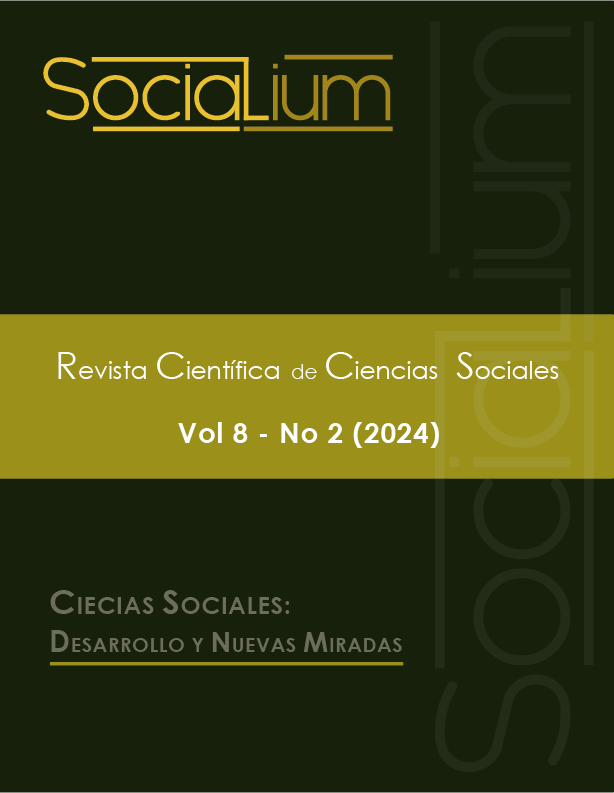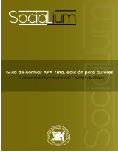Theory of emotional intelligence by Goleman in the development of citizenship competencies
DOI:
https://doi.org/10.26490/uncp.sl.2024.8.2.2031Keywords:
theory of emotional intelligence, comprehensive training., citizenship skillsAbstract
The study analyzed the impact of Goleman's emotional intelligence theory on the development of citizenship competencies, based on the premise that emotional intelligence plays a crucial role in shaping students' citizenship skills. Using a qualitative approach and an action research design, the study involved teachers and eighth-grade students from the San Francisco de Asís Educational Institution in Pamplona, Colombia, as key informants. Semi-structured interviews and field diaries were employed as data collection instruments. The results highlighted a significant contribution to understanding the importance of emotional intelligence in the holistic development of students, particularly in their ability to relate constructively within society and contribute to the creation of more cohesive and peaceful communities. It was concluded that emotional skills and citizenship competencies are essential for peaceful and respectful coexistence. The integration of a pedagogical framework based on emotional intelligence into the educational process showed improvements in key areas such as conflict resolution, assertive communication, and collaboration in social settings.
Downloads
References
Arias, F. (2006). Introducción a la técnica de investigación en ciencias de la Administración y del Comportamiento (3.ª. ed.). Trillas.
Amezcua, M., & Gálvez, A. (2002). La investigación cualitativa y la investigación acción: Fundamentos y aplicaciones en la práctica enfermera. Revista Rol de Enfermería, 25(2), 123-129.
Chipia, J. F., Cadenas, R. A., & Lara, C. Z. (2012). Propuesta para la enseñanza de organización de datos para variables cualitativas. Revista EDUCERE, 16(53), 185-196. https://www.redalyc.org/pdf/356/35626160011.pdf
Cooper, R., & Sawaf, A. (1997). Estrategia emocional para ejecutivos. Martínez Roca.
Gallego, D. (1999). Implicaciones educativas de la inteligencia emocional. UNED.
Goleman, D. (2018). La inteligencia emocional. Por qué es más importante que el coeficiente intelectual. Ediciones B.
Hernández, R., Fernández, C., & Baptista, M. (2014). Metodología de la investigación (6.ª ed.). McGraw-Hill.
Martín, M. (2007). Análisis histórico y conceptual de las relaciones entre la inteligencia y la razón [Tesis doctoral, Universidad de Málaga]. Repositorio institucional. https://riuma.uma.es/xmlui/bitstream/handle/10630/2666/1685391x.pdf
Mayer, J., & Salovey, P. (1997). ¿Qué es la inteligencia emocional? BasicBooks.
Ministerio de Educacional Nacional de la República de Colombia. (2004). Formar para la ciudadanía ¡Sí es posible! Revolución Educativa [Archivo PDF]. MEN. https://www.mineducacion.gov.co/1621/articles-75768_archivo_pdf.pdf
Mendieta, G. (2015). Informantes y muestreo en investigación cualitativa. Investigaciones Andina, 17(30), 1148-1150. https://www.redalyc.org/pdf/2390/239035878001.pdf
Real Academia Española. (2022). Diccionario de la lengua española. RAE. https://dle.rae.es/inteligencia
Rodríguez, A., Ruíz, S. P., & Guerra, Y. (2007). Competencias ciudadanas aplicadas a la educación en Colombia. Revista de Educación y Desarrollo Social, 1(1), 140-157. https://revistas.unimilitar.edu.co/index.php/reds/article/view/700/454
Shapiro, L. (1997). La inteligencia emocional de los niños. Zeta.
Downloads
Published
Issue
Section
License
Copyright (c) 2025 Nubia Rivera Mogollón

This work is licensed under a Creative Commons Attribution 4.0 International License.








.jpg)












